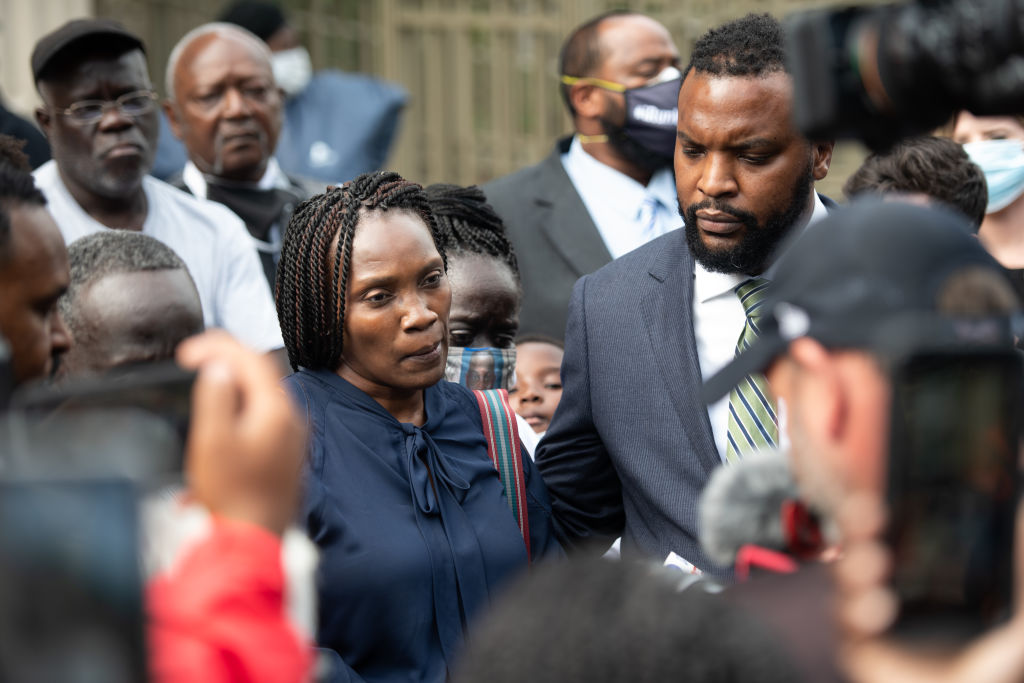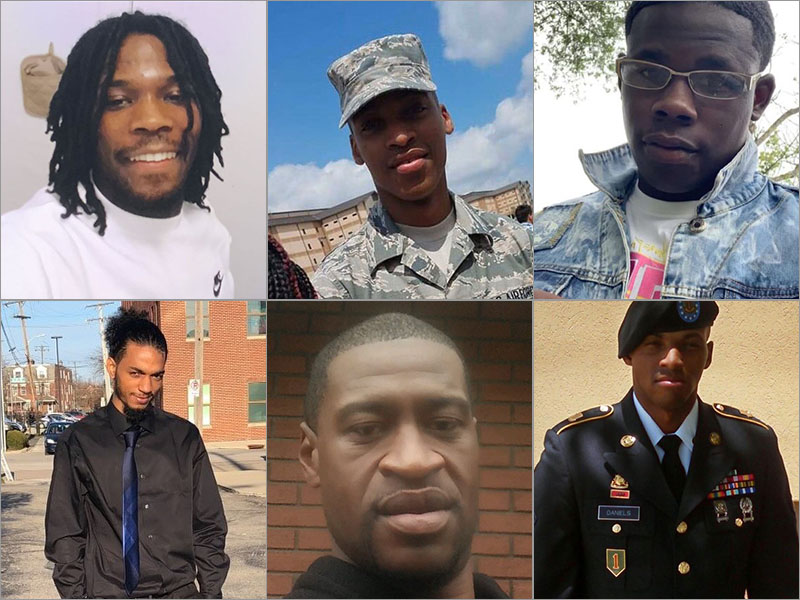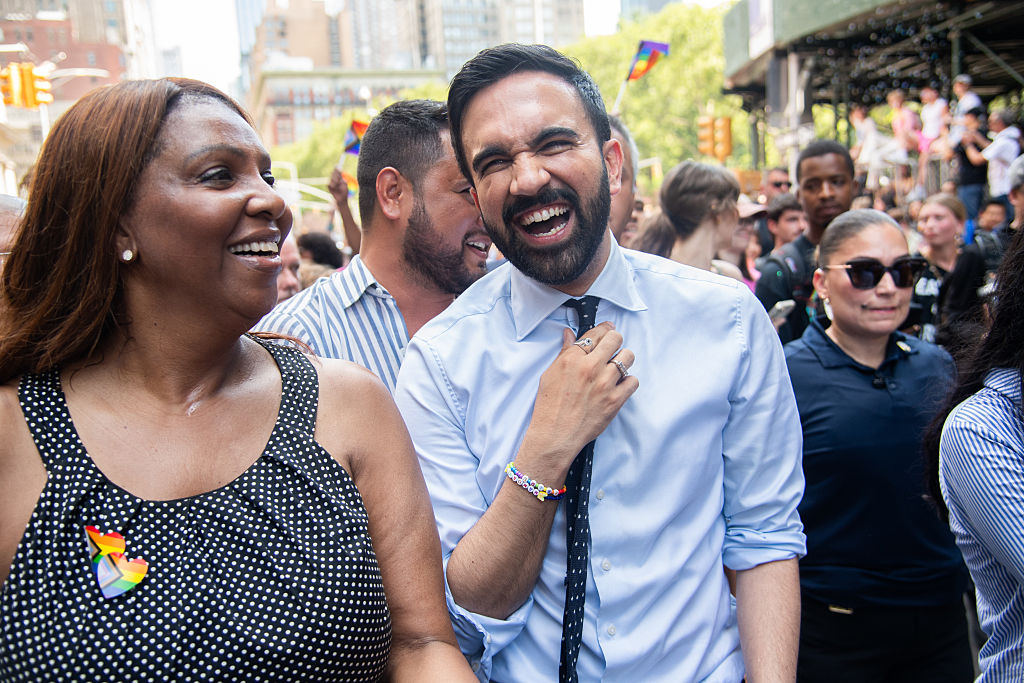Trump Wanted Ahmaud Arbery Family At Police Reform Executive Order: Report
Trump Reportedly Wanted To Use Ahmaud Arbery’s Family For Police Reform ‘Photo Op’
UPDATED: 1:00 p.m. ET —
The attorney representing Ahmaud Arbery‘s family said there was no “photo op” at the White House during the president’s executive order for police reform at the White House on Tuesday. Lee Merritt tweeted a photo of him with Arbery’s mother, Wanda Cooper-Jones, in addressing a report that civil rights leaders took umbrage at a late-night call requesting they be present when Donald Trump signed the executive order.
“Reports of a photo op with the president or standing with the White House during the EO signing are false,” Merritt tweeted. “Show me the civil rights leaders who are upset about families making a direct appeal for federal intervention after the murder of their loved one & I’ll show you a clown.”
A message sent to Merritt was not immediately returned.
Original story:
Donald Trump, who would never dare to positively utter the words “Black Lives Matter,” found himself caring about Black lives on Tuesday when he wanted some of them on display for a “photo op” during his scheduled signing of an executive order for police reform, according to a new report.
Trump was expected to unveil his executive order that the president told reporters would be “pretty comprehensive.” What he didn’t mention was how he wanted to have the family of Ahmaud Arbery present during the signing. April Ryan tweeted early Tuesday morning that civil rights leaders were “OUTRAGED” Arbery’s family members and their lawyer were “expected” to be at the White House alongside Trump. Ryan, the White House correspondent for American Urban Radio Networks, described the event as a “photo op.”
The executive order is supposed to address police reform, so it was curious why Trump reportedly wanted Arbery’s family there at all. Arbery is the Black jogger hunted down by three white men who racially profiled him as a burglar in rural Georgia. They trapped him with two trucks and Gregory and Travis McMichael, a father and son, shot and killed Arbery, who was just 25 years old when he died in February on a street in broad daylight. While the local police department seemed to be involved in trying to coverup Arbery’s killing, the people who shot him were not members of law enforcement and therefore would not be subject to any of the supposed “comprehensive” reform Trump said he would sign into effect on Tuesday. (Gregory McMichael is a retired police employee.)
A message sent to Lee Merritt, the civil rights attorney representing Arbery’s family, was not immediately returned.

Wanda Cooper, left, mother of Ahmaud Arbery, and attorney Lee Merritt, talk with the media outside the Glynn County courthouse after a court appearance by Gregory and Travis McMichael. | Source: Sean Rayford / Getty
Of course, the irony of Trump signing an executive order for police reform is the fact that the president once famously called for law enforcement to “not be so nice” to suspects. That seeing encouragement of the kind of police brutality that continues to kill Black people could be seen as being complicit in the police violence that killed George Floyd in Minneapolis, Breonna Taylor in Lousiville, Kentucky, and most recently Rayshard Brooks in Atlanta.
Trump was vague about what the supposed reform would look like, telling reporters on Monday to expect “some good solutions” to “things that we’ve been watching and seeing for the last month.”
CBS News reported that Trump was expected to also meet separately with family members “of those killed by police and in racially motivated attacks,” but Arbery’s killing has not been officially established as a racist one; especially since Georgia does not have a hate crime on the books. ” It’s unclear, however, if the president plans to address racial bias in law enforcement,” CBS News added.
Trump was scheduled to sign the executive order in the White House at noon.
Trump’s executive order was coming more than a week after House Democrats unveiled their landmark and sweeping legislation for comprehensive police reform. The Justice in Policing Act of 2020 ambitiously aims to end police brutality, hold police accountable, improve transparency in policing and create meaningful, structural change when it comes to how law enforcement does their jobs.
SEE ALSO:
Landmark Police Reform Bill Addresses Funding, Chokeholds, Lynching And Accountability
Amid Movement To Defund Police, Biden Wants To Give Them More Money


















